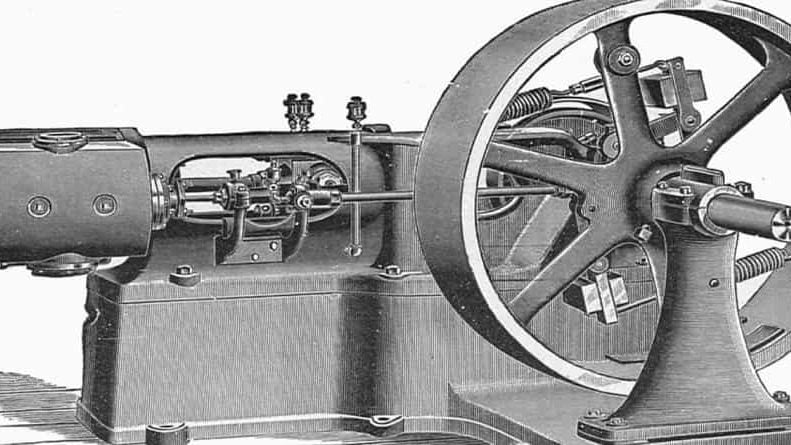The Industrial Age and the Electronic Age are two different periods of civilization. These civilizations are thought of in schools as part of the curriculum in introductory computer study in Junior secondary schools. This article covers all that students need to know concerning the industrial age and the electronic age.
The Industrial Age was a period of social and economic reorganization. Remember the Stone Age, the period when crude tools were used. During the Stone Age, production was done by exerting human efforts.
During the period of 1760 to 1840, these hand tools were gradually replaced and powered by machines and this period marked the period of great inventions otherwise called industrial age inventions.
The Industrial Age is also known as the Industrial Revolution. During this period, there was a shift in production and production processes. Civilization gradually transformed from agricultural dominance to industrial manufacturing.
The invention of transistors ushered in the Electronic Age. Thus, the electronic age could be thought of as beginning in the late 1940s. The transistor served as the basis for microchips and computer technology as well as the building block for all modern electronics.
In the electronic age, digital computers were built around electrical switches and electromagnetic relays. This period is so-called because the mechanical devices invented used electrical switches for their control.
Because computers are used in information storage and transmission, the period was also called the information age. This was the period when the vacuum tube was invented.
Let’s explore these ages in greater detail in the following sub-topics:
- Meaning of the Industrial Revolution
- Technologies and inventions of the Industrial Revolution or age
- Socio-economic effects of the Industrial Revolution
- Characteristics of the electronic age
- Key technologies and inventions of the electronic age, and benefits of the electronic age.
Table of Contents
The Industrial Revolution
In this subsection, we looked at the Industrial Revolution or Age. We considered the meaning, basic characteristics, inventions, and benefits of the Industrial Revolution.
What is the Industrial Age?
The Industrial Age is a historical period that began in 1760 and ended around 1840. It was a period when there was the massive replacement of hand tools by power-driven machines. During this period, civilization shifted from agrarian to industrial and urbanization. This period is synonymous with the Industrial Revolution.
This period gave birth to great thinkers and inventors whose inventions ushered in modern civilization. The Industrial Age or Industrial Revolution is a period between the late 17th century (1760) and the 19th century.
This period marked the transformation from an agrarian, subsistence, and human society into an industrial and urban society. This period experienced more modernization processes, increased social change, and economic development. There were massive technological innovations during this era.
During this period, production processes changed from manual methods to the use of machines. There were 3 key industrial developments that led to the industrialization of America and the world, namely;
- Expanded transportation system
- The effective harnessing of electricity, and
- Advances in industrial processes
- This period is marked by advanced productivity and the production of a variety of products
- Better products are produced

Key Technologies and Inventions of the Industrial Revolution
| Inventor | Invention | Date |
| James Watt | First reliable Steam Engine | 1775 |
| Eli Whitney | Cotton Gin, Interchangeable parts for muskets | 1793, 1798 |
| Robert Fulton | Regular Steamboat service on the Hudson River | 1807 |
| Samuel F. B. Morse | Telegraph | 1836 |
| Elias Howe | Sewing Machine | 1844 |
| Isaac Singer | Improves and markets Howe’s Sewing Machine | 1851 |
| Cyrus Field | Transatlantic Cable | 1866 |
| Alexander Graham Bell | Telephone | 1876 |
| Thomas Edison | The phonograph, Incandescent Light Bulb | 1877, 1879 |
| Nikola Tesla | Induction Electric Motor | 1888 |
| Rudolf Diesel | Diesel Engine | 1892 |
| Orville and Wilbur Wright | First Airplane | 1903 |
| Henry Ford | Model T Ford, Assembly Line | 1908, 1913 |

Social and Economic Effects of the Industrial Revolution
- It led to the exploitation of workers and consequently, a low standard of living
- It led to rapid urbanization
- It led to a change in family structure as adults tend to migrate to places where there are jobs.
- There was rapid population growth during the period
- Child labor became more visible as a result of population growth. There was limited opportunity for education, and children were expected to work.
- Many craft and skilled workers lost their jobs as they could not compete with machines.
The Electronic Age
Industries and machines are important parts of production in the world today. Another important factor was factored in in the late 1950s. This crucial factor of production, also known as the digital revolution is called the electronic age.
In 1947, three (3) American Physicists, William Shockley, John Bardeen, and Walter Brattain, invented the transistor which helped revolutionize the electronic age.
The transistor served as the basis for microchips and computer technology as well as the building block for all modern electronics.
The transistor was a crucial invention because it helped to amplify electrical signals. The invention of transistors led to the creation of smaller and cheaper devices that made life easier. It also ushered in the invention of computers and computing devices.
Meaning of the electronic age
The electronic Era is also known as the information age or the digital age. It began around the 1950s and continued till the present day. This is a period of transition from traditional industry to an economy based on information computerization.
The electronic age is the period of information computerization that was made possible through electrical switches. The present period can no longer be regarded completely as the electronic age.
We can classify this period as the period of the Internet of Things (IoT). Because we are gradually depending on robots and machines to perform functions previously performed by humans.
Through development in artificial intelligence and machine learning, machines can learn human emotions. By this, they are able to make decisions that humans should have made, thereby aiding production.
Characteristics of the electronic age
- The information revolution creates a knowledge-based society.
- There is an effective use of information during this era.
- This era is marked by efficiency in manufacturing productivity.
- Similarly, there is efficiency in service delivery.
- This period is marked by greater productivity through the use of advanced technology.
- There is better management of resources through the use of data science
- Machines are beginning to replace man in production leading to the gradual loss of jobs
These were made possible through advances in computer microprocessors, inventions of personal computers, the internet, and the World Wide Web.
Key Technologies of the Electronic Age
Some notable technology and innovations that facilitated the information age include:
| Innovation | Date | Innovation | Date |
| 1971 | Home video game consoles, widespread public application | 1972 1980s | |
| Personal computer widespread public application | 1974 1980s | Laptop widespread public application | 1980s 1990s |
| World Wide Web widespread public application | 1989 1990s | Online gaming communities’ widespread public application | 1990s 2000s |
| PDAs | 1990s | Wireless Networking | 1990s |
| Cellular phones widespread public application | 1984 1990s -2000s | Digital Camera and Webcams Mainstreamed | 1980s 2000s |
| GPS mainstreamed | 2000s | Satellite radio – circa | 2001 |
| Broadband mainstreamed | 2000s & 2010s | Smartphones widespread public application | 2000s 2010s |
| Digital Television widespread public application Digital television transition | 1990s 2000s 2006 | Tablet PCs Mainstream | 1990s 2010s |
Benefits of the Electronic Age
- The electronic age brought with it greater interdependence of people and nations
- It has also made communication easier and faster
- It has made information easily available to people and at a cheaper rate
- The information age brought about globalization and outsourcing which improves business efficiency.
- The information age has also contributed to improved productivity and business efficiency.
Conclusion
The industrial age or revolution is a period of great civilization and transformation from an agrarian to an industrial society. Society was completely transformed by the industrial age inventions.
When we critically look at the definition, we understand that Africa and third-world nations are still in this age. This is because production in these societies is gradually transforming from agrarian to manufacturing. In some cases, they are still using handmade tools to power agricultural production.
It is just recently that a few of the third-world nations embraced the mechanized system of farming. Yet, this system has not been fully integrated to boost production.





Thanks to the invention and widespread application of smartphone, else, I wouldn’t be reading this now